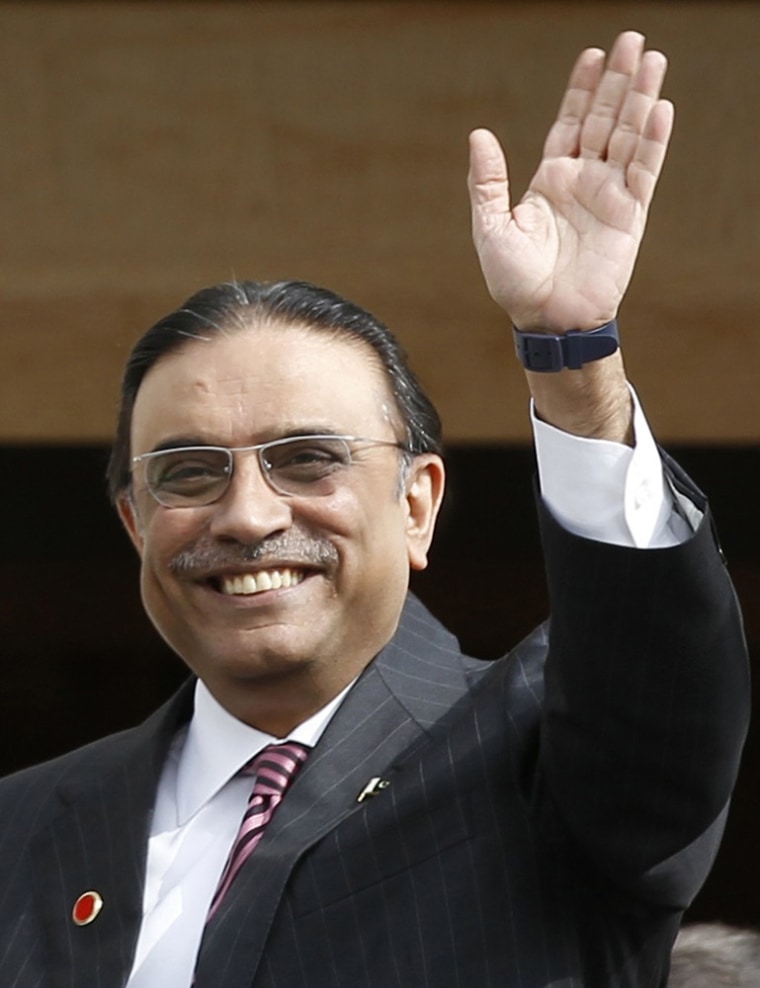Pakistani President Asif Ali Zardari left for Dubai on a scheduled one-day trip on Thursday, local television stations reported, amid growing tension over a memo seeking U.S. help in preventing a coup by Pakistan's powerful military.
The president's trip comes during the worst tensions between Pakistan's civilian government and the military since a coup in 1999.
Government and party officials said the president was attending a wedding in Dubai and would be back in Pakistan on Friday morning.
They said that the trip was not connected to the current crisis. They didn't give their names because they were not authorized to release the information.
Earlier, sources close to the president told Reuters that Zardari might go to Dubai for further medical tests following his admission to hospital there last month for heart treatment.
"This trip will be for a follow-up medical checkup and then he'll be returning right away," said a Zardari associate.
In December, Zardari, 56, flew to Dubai for medical treatment sparking rumors that he had fled the country anticipating a coup.
He was treated for what Pakistani officials said was a transient ischemic attack, in which blood supply to a part of the nervous system is cut off, but not for long enough to kill tissue as in a stroke.
'Grievous consequences'
On Wednesday, Pakistan Prime Minister Yousuf Reza Gilani fired the defense secretary, Lt. Gen. Naeem Khalid Lodhi, amid an ongoing crisis that pits the civilian government against the powerful military leadership.
The army warned darkly of "grievous consequences" as a result of the standoff, which is hampering U.S. efforts to rebuild shattered ties with the nuclear-armed nation that are needed to negotiate an end to the war in neighboring Afghanistan.

An official told The Associated Press that Gilani had fired retired Lodhi because of "misconduct" relating to his role in submitting statements by the army and spy chief to the Supreme Court about a scandal involving a memo sent to Washington that is rocking the country.
The memo was allegedly sent to Washington asking for its help in reining in the army. The memo outraged the army, and the Supreme Court ordered a probe to establish whether it had been sanctioned by Zardari.
The official didn't give his name because of the sensitivity of the situation, the AP said. NBC News later confirmed that Gilani had dismissed Lodhi.
A senior military official told Reuters the latest tension was "very serious," and Pakistani newspaper Dawn reported that the army chief had summoned an emergency meeting of the corps of commanders.
Although Pakistan is a U.S. ally, their relations are often difficult and anti-U.S. sentiment runs high.
